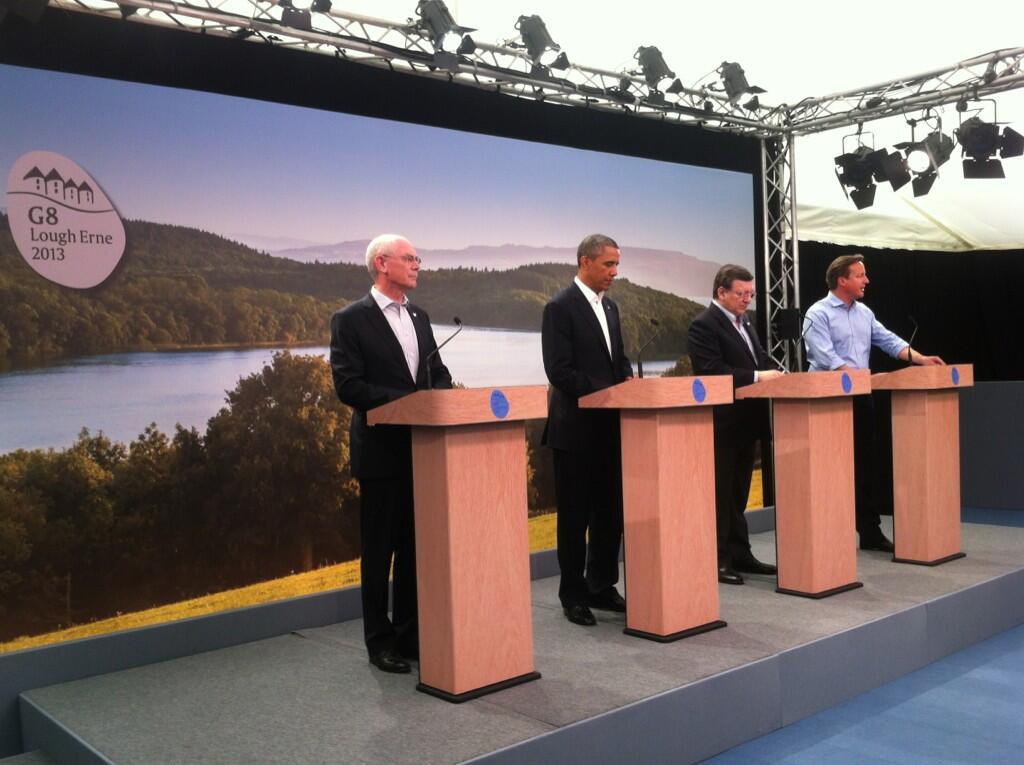20th June 2013 Washington DC, USA
“Sticking” Together for Transatlantic Trade
As a Senior Trade Policy Advisor here at the Embassy in Washington, part of my role over the last few months has been in helping to coordinate the delicate dance required in the run-up to the launch of a major international negotiation.

Here’s hoping that I’ll get the opportunity to feel the same jitters all over again when that next high-priced European car I want to buy is cheaper because we were able to complete and ambitious and comprehensive trade accord.
The Transatlantic Trade and Investment Partnership (or TTIP for short) will be the most modern and transformative trade deal ever made. “OK, Thomas,” you say, “but what does that all mean?”
Over the last 70 or so years the world has enjoyed a greater level of economic integration than ever before. Rules negotiated internationally between countries both big and small have allowed businesses to play on a bigger playing field, taking advantage of relative market efficiencies around the world, bringing lower prices, enhanced security and stability and ever-more dynamism to international commerce.
Joined with advances made in areas like communications, computing, and biotechnology, global businesses now produce and sell in multiple markets at the same time – often, so called “supply chains” for a single product span 20 countries or more.
But there’s a risk that political cooperation and smart, market-oriented policymaking won’t continue into the future.
The World Trade Organization (WTO), the long-time mantle of global economic cooperation, has had a difficult time getting past some old wounds – indeed, the most often-cited reasons for the trouble with the Doha Round was an inability to bridge differences on some 20th Century issues that are frankly very “old-hat.”
TTIP represents an opportunity to address new areas of trade protection that are relatively uncontroversial and could deliver massive future gains. For example, negotiators are already considering improvements to the way we (on both sides of the Atlantic) crash test cars that will increase the size of the transatlantic auto market.
Alignment on some technical standards for food, chemicals, and pharmaceuticals (all highly-traded products already), will result in more sales and a more competitive marketplace generating new economic activity. Even something as simple on paper as the US and EU adopting common industrial standards would positively impact growth and jobs.
But to do all of this will require cooperation and immense political will. The deal’s detractors argue that cultural differences and the size of the two markets will make negotiations difficult. (These fears are unfounded: there have been agreements between culturally diverse trading blocs in the past, and the size of our markets is a good reason for us to pursue an ambitious deal, not a hindrance to it.)
But these critics would be better-served by addressing the problems with completing a deal with so many moving parts, rather than by arguing that insurmountable differences will cause the negotiations to falter.
That last point reminds me of Aesop’s Fable where the elderly father of group of quarrelling brothers decides to end the infighting by way of illustration. He gives each of them in succession a bundle of sticks and tells them to break the bundle of sticks into pieces.
Each tries, and none is successful. He then unbinds the bundle, gives each of the brothers a separate stick and tells him to break it. They are all successful. The moral is simple – union brings strength; disunity brings weakness.
If we can hang together in this negotiation, keeping at the front of our minds the strength and purpose of a united Europe and US at a time of global disunity, we can set an amazing example to our trading partners around the world of what rules-based, principled international “tradecraft” looks like.
More importantly, we can set out new policies, updated for the 21st Century, which can be taken to the WTO giving new life that crucial forum. This is an exciting time.